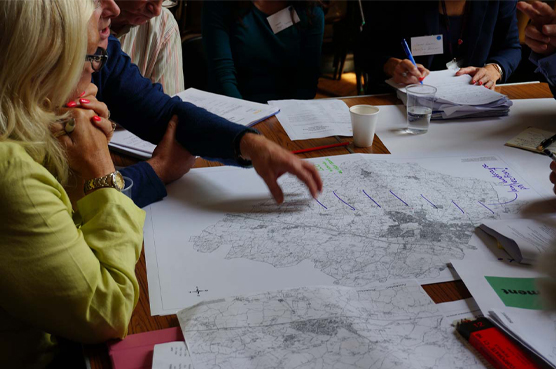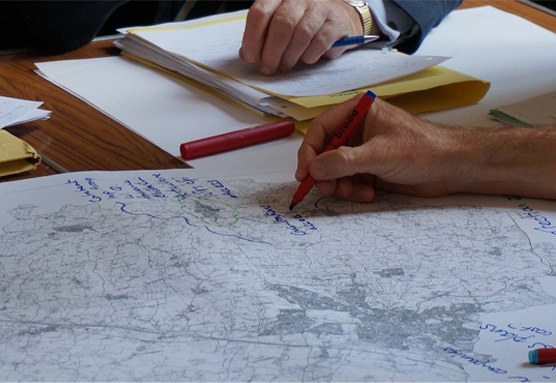Like many local authorities in the South East, the Kent borough of Maidstone is set to experience significant population growth over the next 15-20 years. In addition to densification of the town centre and the development of major sites, this will mean, to a greater or lesser extent, the growth of existing settlements.
But the question is; in the context of local authority site allocations, how can a local authority work constructively with the parish councils responsible for these smaller settlements to enable the development of a coherent and locally acceptable plan for their growth?
In response to this Maidstone Borough Council asked us to use our independence and expertise to work with nine parishes across the borough, providing the required expertise to help communities develop frameworks for the growth of their settlements. In addition, we were asked to facilitate a constructive dialogue between the Borough council and parishes on the planning issues facing them and on their proposals for growth.
In response, we developed a programme of workshops for each parish delivered locally. The first set of workshops explored the rationale behind housing allocations for each parish, site selection criteria and the provision of affordable housing and strategic infrastructure. This was followed by a second set of workshops through which local communities went on to develop a charter for the physical development of those communities, giving local people a set of tools with which to engage constructively with developers and the local authority about the quality of future planning applications. This exercise defined settlements’ existing character and established a set of principles to allow local character to inform future development, and the charters sought to balance those core principles against future housing needs, while looking for opportunities to strengthen local character through new development.
A larger workshop also brought together the parishes, the borough council, the county council and the various infrastructure providers to address strategic infrastructure issues, including water, highways, education and environment. A closing set of workshops brought together the parishes and the borough council to reflect on the process and agree actions to support closer collaboration in future.

